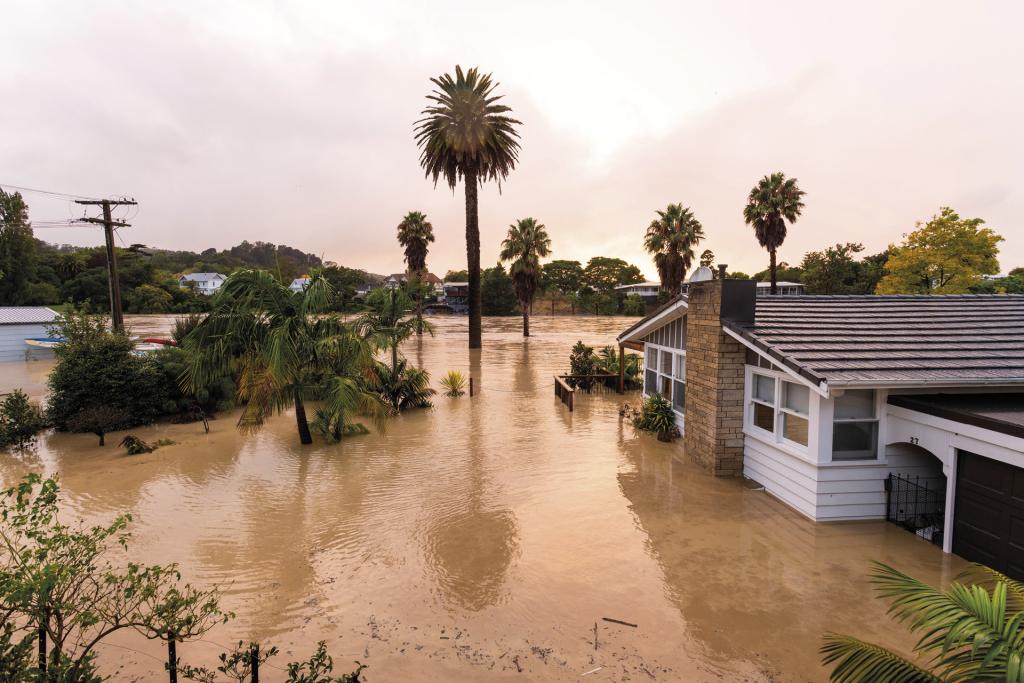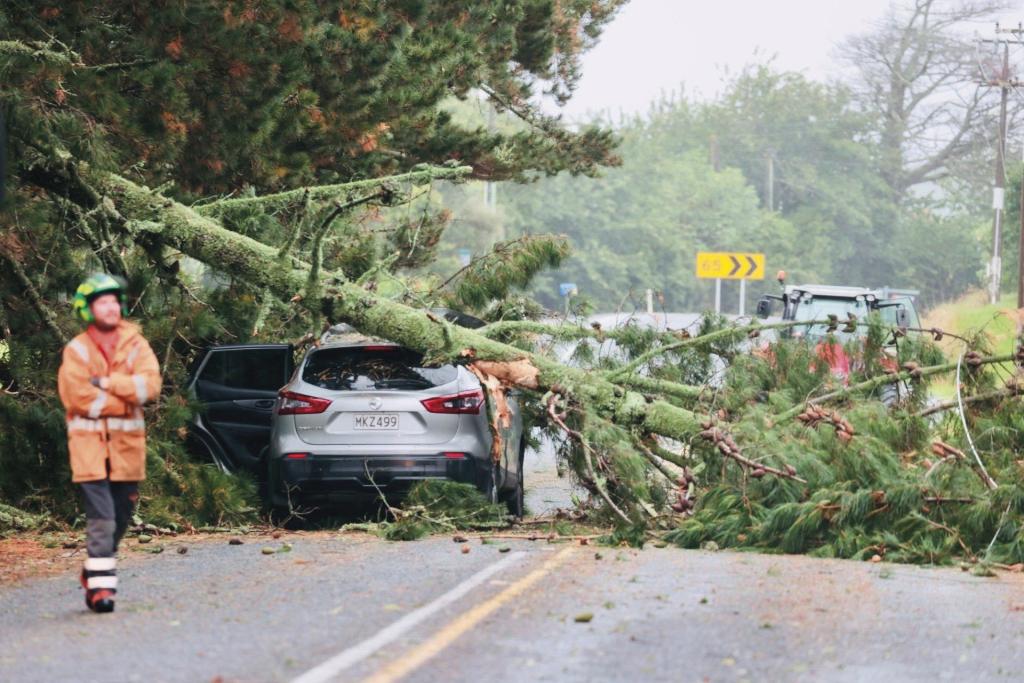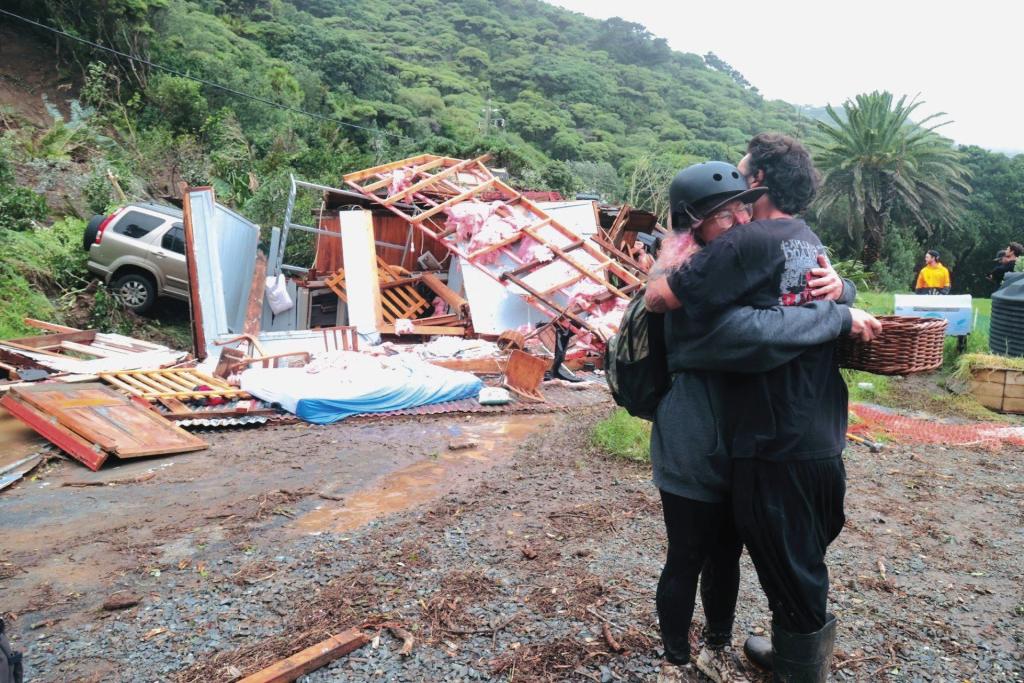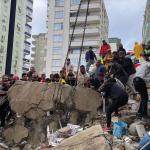Getting on after Gabrielle
Cyclone Gabrielle caused unprecedented flooding and damage across parts of New Zealand’s North Island, leaving the country in a national state of emergency.
PDG Stuart Batty
Executive Director, RNZWCS Limited
(Photos: Stuff Ltd.)
Severe Tropical Cyclone Gabrielle hit the uppermost region of New Zealand’s North Island on February 12 and tracked down the east coast, inflicting widespread devastation. Prime Minister Chris Hipkins has called Gabrielle New Zealand’s biggest natural disaster this century.
It is the costliest tropical cyclone on record in the Southern Hemisphere, with damages estimated to be at least NZ$13 billion.
At the time of press, 11 people were confirmed dead, with 346 uncontactable – down from an initial 6,000.

The cyclone was preceded by Cyclone Hale a month earlier, beginning a month-long trail of widespread flooding causing landslips and damage to many areas, particularly in the Auckland region, where some homes were destroyed or became uninhabitable.
Weather forecasters did not predict the massive damage from Cyclone Gabrielle, the most devastated being a rural region on the East Coast of the North Island and including Gisborne City through Wairoa to Napier City and beyond.
The road and rail infrastructure has been decimated and it will be months, if at all, for some highways and roads to reopen.

Hundreds have lost their homes, possessions and livelihood as the massive flooding has brought with it huge amounts of silt, totally burying houses and outbuildings in some cases. Farmers and orchardists have been severely hit, where land rehabilitation is beyond comprehension.
There is huge outpouring of concern across New Zealand and the globe, with hundreds of appeals from individuals, organisations, NGOs and local councils being established.
Rotary is no exception, with members in Districts 9910, 9920 and 9930 working beside community support organisations to provide immediate assistance. Many Rotarian families in these districts are among those who have lost everything and are being supported.

Rotary New Zealand World Community Service (RNZWCS) and Rotary Australia World Community Service (RAWCS) continue to collaborate, having established a working group some years ago, meeting bi-monthly via Zoom. A number of New Zealand Donors living in Australia and vice versa are now able to donate to projects and appeals in the country they reside in and obtain tax credits.
Cyclone Gabrielle is the latest in a decade of unprecedented cyclonic weather events, as well as bushfires, floods, earthquakes, volcanic eruption and tsunami, that have devastated communities throughout New Zealand, Australia and the South West Pacific.
Here’s how to have the greatest impact: RNZWCS Appeal Westpac Account: 03 1702 0192208 02 or 01 Ref: 017 SWIFT Code: WPACNZ2W RAWCS Appeal Visit rawcs.org.au/disasters Project Number 60-2022-23 Flood Relief Appeal Donations can be made in multiples of $10. The funds will be distributed to affected communities through local Rotary clubs. Tax receipts will be issued for all donations made. Visit nzfloods.org.
Related news
Rotary Gets Pumped
Four years ago, the Rotary Club of Devonport spotted an opportunity to create an action-packed space for their mokopuna (young kids). They noticed the kids were creating a rough and hazardous bike track through an unused part of the Waitemata Golf Club. A core group of Rotarians worked tirelessly with the golf club negotiating a […]
Fyansford Paper Mill Heritage Tour hits new milestone
The Rotary Club of Highton, Vic, has proudly announced its 1,000th visitor on the highly acclaimed Fyansford Paper Mill Heritage Tour. Since November 6, 2022, the club has organised guided tours of the Fyansford Paper Mill, offering an immersive experience through the mill’s rich heritage. Set on the Barwon River, overlooking the picturesque Buckley Falls, […]
Literacy
Literacy plays a central role in this year’s Rotary international theme, Create Hope in the World. Without reading one cannot actively participate in job seeking, getting a driver’s licence, read labels on medicine bottles, help with a child’s homework, or even readily participate on social media. Poor reading skills can result in lack of self-esteem, […]
Join our newsletter for the latest updates
"*" indicates required fields


